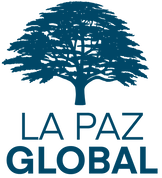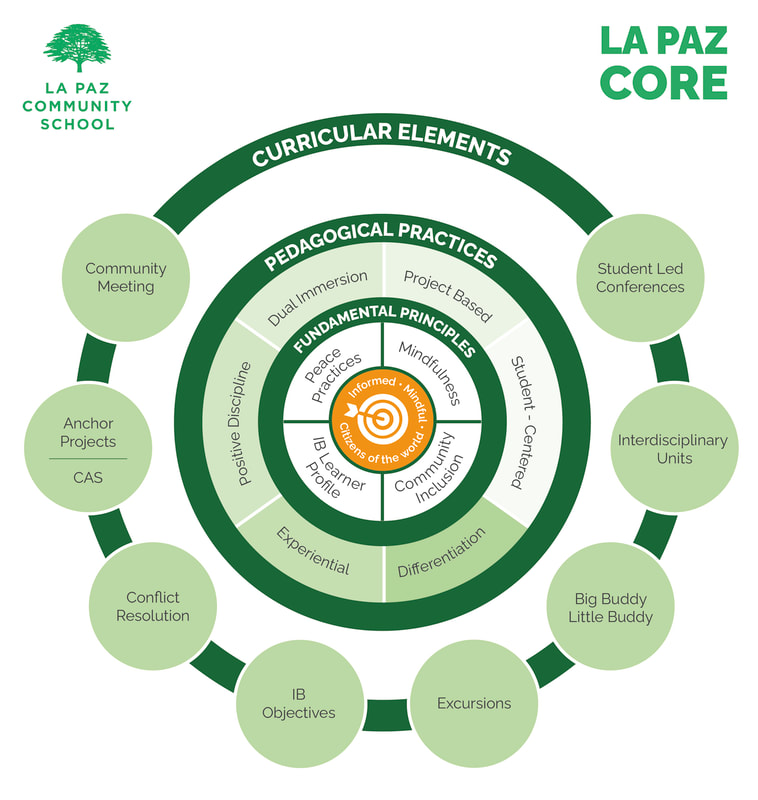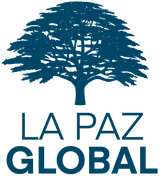La Paz Community School was founded in 2007 to address socio-cultural gaps prevalent in a region struggling to cope with the balance between a local and foreign populations
It's mission is "to cultivate informed, mindful and compassionate citizens of the world"
La Paz School recognizes that education must lie at the core of community building, where all individuals feel a sense of belonging, connection, and agency. The school's educational programs address the increasing stratification of the global community by intentionally teaching core competencies that focus on community and human interaction. The school provides a dual immersion and multicultural educational experience that is integrated with local culture, allowing students to develop a global perspective while also preserving their cultural identity. LPCR's curriculum is designed to foster critical thinking, creative problem-solving while emphasizing the importance of collaboration, compassion, and communication. The school also focuses on project-based learning that allows students and staff to collaborate with the local community and participate in sustainable development projects, thus creating enduring change that increases the overall social capital of the region surrounding the school.
La Paz School envisions a future where education focuses on the preservation and evolution of our collective shared humanity. The school aims to unite communities with distinct socioeconomic and sociocultural differences, creating a mutually beneficial educational model that increases the collective human capital of all members of the community.
LA PAZ COMMUNITY SCHOOL SCHOLARSHIP PROGRAM
About the Scholarship Program: Since 2007, the La Paz Community School Scholarship program has been dedicated to providing an inclusive, high-quality 21st-century education to nearly 100 students, including 23 graduates. The program benefits not only the students, but also their families and communities.
Funding: The scholarship program is solely funded by generous donations from supporters like yourself.
Resources: The scholarship program requires significant specialized resources to ensure an equitable learning environment for the students. These resources include, but are not limited to:
How do we measure our success? Changes in social capital happen across generations, so our primary evidence for success comes from our graduate scholarship students themselves and family testimonies. Click here to learn more about their life journeys. The vast majority of scholarship students are the first in their families to attend university.
About the Scholarship Program: Since 2007, the La Paz Community School Scholarship program has been dedicated to providing an inclusive, high-quality 21st-century education to nearly 100 students, including 23 graduates. The program benefits not only the students, but also their families and communities.
Funding: The scholarship program is solely funded by generous donations from supporters like yourself.
Resources: The scholarship program requires significant specialized resources to ensure an equitable learning environment for the students. These resources include, but are not limited to:
- Transportation to and from school as well as field trips and extracurricular activities
- Site based scholarship coordinators to ensure that academic, socioemotional, and familiar needs are met
- Home visits to understand the needs of each family are being met and there is a supportive learning environment
- Workshops to teach skills in parenting, positive discipline, relationships, sexual abuse prevention, and technology management
- Special services including but not limited to psychoeducational and socioemotional support
- Extracurricular programs to offer enrichment experiences beyond the daily curriculum
- Connectivity in the household to make learning accessible during after school hours.
How do we measure our success? Changes in social capital happen across generations, so our primary evidence for success comes from our graduate scholarship students themselves and family testimonies. Click here to learn more about their life journeys. The vast majority of scholarship students are the first in their families to attend university.
EIN: 42-1649091La Paz Global
9450 SW Gemini Dr, Suite 74632 Beaverton, Oregon 97008-7105 US |
CONTACT US -
|






